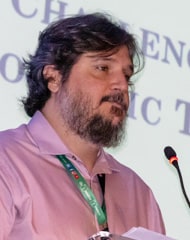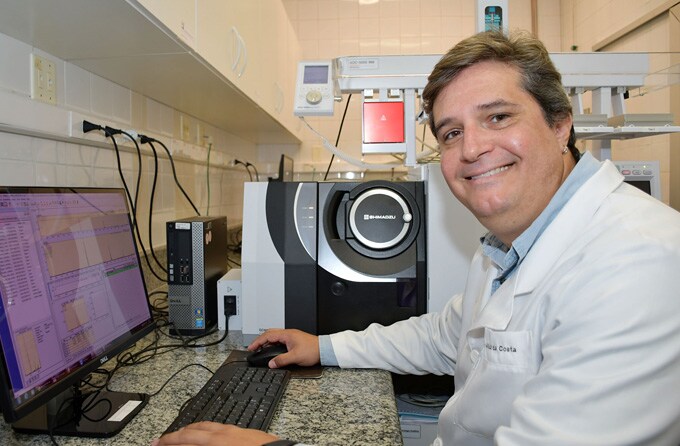Celebrating 50 Years of MS Innovation - User interviews September 2020
On the occasion of Shimadzu's 50th year of producing mass spectrometry instruments, we talk to researchers using Shimadzu MS instruments in their daily work and ask about their expectations for Shimadzu and the future of MS technology.

Prof. Jose Luiz Costa
Professor of Toxicology, University of Campinas (UNICAMP, Brazil)
Head of Campinas Poison Control Center, University of Campinas (UNICAMP, Brazil)
Main field of study:
Forensic and clinical toxicology, forensic chemistry (drug analysis)
1. How did you become familiar with Shimadzu?
When I began my career in the Forensic Laboratories of Sao Paulo State Police, I worked with many Shimadzu instruments (GC-FID, HPLC, fluorescence and UV/VIS spectrophotometer, atomic absorption spectrophotometer). Ten years later, Sao Paulo State Police bought our first LC-MS/MS system (LCMS-8040) and after that, two more systems (LCMS-8045 and LCMS-8050) for running forensic toxicology screening on a daily basis. I moved to the University of Campinas in 2016, and in my laboratory now we have a LC-MS/MS (LCMS-8060), a GC-MS/MS (GCMS-TQ8050) and a HS-GC-FID, all systems dedicated to research in forensic and clinical toxicology.
2. What is your main field of research, and how are you utilizing Shimadzu equipment?
My research is focused on analytical toxicology, mainly method development for forensic and clinical toxicology. My research group is working on microextraction techniques for sample preparation (blood, urine, oral fluid, vitreous humor), minimizing the consumption and analyst exposure of organic solvents. This green approach in analytical toxicology has many advantages, but requires sensitive instruments to detect and quantify the analytes, and we got it with Shimadzu instruments (LC-MS/MS and GC-MS/MS).
3. What are your reasons for choosing Shimadzu equipment?
In forensic toxicology, we need very robust instruments, to be able to run thousands of samples (blood, urine, hair, oral fluid) every month, and Shimadzu mass spectrometers are undoubtedly very robust. Also, Shimadzu staff in Brazil are always very friendly and cooperative, trying to facilitate acquisition and aftersales service as much as possible.
4. What trends are you seeing in your field with regards to the use of mass spectrometry?
Mass spectrometry is the key technology in forensic laboratories. Most of the analysis has moved from GC-MS systems to LC-MS/MS, due to the sensitivity and versatility of this platform. The trend now in forensic toxicology is to move to untargeted drug screening, using high-resolution and mass accuracy mass spectrometry. Also, the use of greener sample preparation procedures (e.g. microextractions) will become the gold standard, and will requires sensitive and robust instruments.
5. What are your expectations for Shimadzu and for MS technology in general in the future?
To keep building high-end, user friendly and very robust instruments. Also, to keep their close relationship with customers, one of the most important characteristics of Shimadzu in my country.



